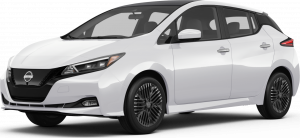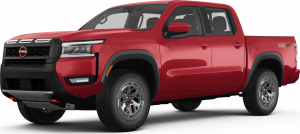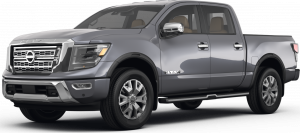
Your vehicle is a major investment, and routine maintenance is needed to keep it in great condition. At Nissan of Orangeburg, we’ve made car care simpler than ever! Our certified technicians are always here to help, starting with our comprehensive Nissan car maintenance guide. Read on to learn more.
Understanding Routine Maintenance & Your Nissan's Maintenance Schedule
Following the manufacturer’s maintenance schedule is a great way to stay on track, ensuring your Nissan maintains its top-notch performance as the miles add up. Keep in mind that, depending on your local climate, road conditions, and driving habits, your car may require additional or more frequent maintenance.
According to Nissan manufacturers, you should service your Nissan every 10,000 miles or once a year. Here’s the details:
Cabin Filter
We recommend changing cabin air filters every 18,000 miles, or whenever you schedule a maintenance check.
Air Filter
Because a dirty filter lets dust into the engine and inhibits air flow, it’s important to change it every 5,000 miles or so. For drivers who often drive on dirt roads or dirty streets, change the air filter more often.
Engine and Emissions Control Maintenance
Once your car has reached 40,000 miles (or you have owned it for four years), have your engine checked out every 10,000 miles or once a year.
Replace the drive belts if needed, and after 105,000 miles or 84 months, schedule your first engine coolant change. After the first one, change the coolant every 75,000 miles or 60 months. Use only original Nissan antifreeze/long-life coolants with 50% antifreeze and 50% demineralized or distilled water. Mixing any other type of coolant or using non-distilled water will cut down the coolant’s lifespan.
Chassis and Body Maintenance
This is especially important for drivers who tow heavy loads or drive on more challenging terrain.
We recommend having fluid levels checked every 60,000 miles, and using only genuine Nissan fluid to replenish low levels. If you tow a trailer, use a touring or motor vehicle, or drive on a rough or muddy road, change the oil every 20,000 miles or 24 months.
These preventative maintenance services are simple, but they can make a major difference – not only keeping your car running smoothly but preventing potentially costly repairs down the road!
DIY vs. Professional Maintenance: Why Some Tasks May be Better Suited For Professional Service
While some maintenance services are easy enough to perform on your own, others are better suited to a professional. There are several pros and cons to consider, based predominantly on cost, time, and individual skill set. Keep the following in mind:
DIY maintenance can save time and money.
It’s no secret that completing car maintenance and repairs yourself keeps you from sitting in the mechanic’s waiting room for hours – and keeps some cash in your wallet. You can also work on your vehicle on your time, based on your schedule.
On the other hand, if you don't have vehicle service experience, the job may take longer than you expect – and certainly longer than it would take a certified technician. Remember that auto shops hire skilled professionals with access to the latest tools and equipment. Plus, a botched repair may end up costing significantly more in the long run.
Leave troubleshooting to the pros.
Simple maintenance is one thing, but without proper training, attempting to diagnose a problem is risky business. Don't troubleshoot unusual sounds, vibrations, or deviations from normal car performance on your own. Instead, get your vehicle checked out immediately by a certified auto technician.
A job well done requires specialized tools.
Mechanics enjoy access to the specialized equipment and tools required for complex repairs. These tools can be costly and won’t likely be found in your toolbox.
Professional service maintains warranty protection.
Scheduling regular maintenance with a professional mechanic can help maintain your vehicle's warranty coverage, ensuring any unexpected issues are addressed without cost to you.
Common Signs of Vehicle Issues
Even the most well-maintained car will encounter problems that require service – and in many cases, these warning signs will let you know that there’s trouble on the horizon:
- Squeaking, scraping, or “soft” brakes
- Less peppy acceleration
- Shaking when the car is starting, turning, or stopping
- Stalling or trouble starting
- Decreased fuel economy
- Hard shifts and lurching
The following issues require immediate attention:
- Illuminated check engine light: A diagnostic test is needed to determine the cause. Never reset the light until you know why it came on!
- Headlight/tail light issues: A blown fuse may be to blame, or you may just need a replacement bulb.
- Low tire pressure: If your vehicle's tire pressure monitoring system (TPMS) indicates that pressure has dropped below normal levels, inflate your tires. Check the owner’s manual for the recommended PSI.
Have More Questions About Routine Maintenance for Your Nissan? Contact Your Local Orangeburg Dealer Today!

If you’d like to learn more, our technicians would be happy to help! We know Nissan vehicles inside and out – and we’re equipped to handle all your automotive needs. Open 6 days a week!
And don't hesitate to schedule a service appointment at Nissan of Orangeburg’s Service Center today!
















